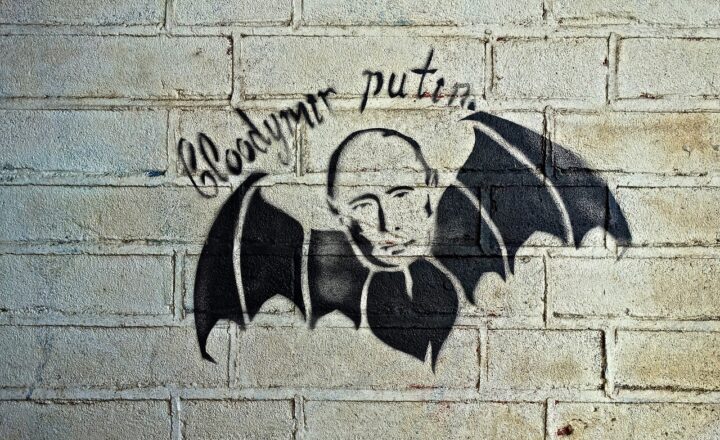The Story Behind Captain America: From Comic Pages to the Big Screen
November 16, 2024

When you think of iconic American superheroes, one figure stands out prominently: Captain America. Dressed in the colors of the American flag and wielding his trusty shield, Captain America has become a symbol of justice, bravery, and patriotism. But how did this character evolve from comic book pages to a blockbuster movie franchise? This article will take you on a journey through the history of Captain America, exploring his origins, the evolution of his character, and his eventual rise to cinematic fame.
1. The Birth of a Hero: Origins in Comics
Captain America was born during a tumultuous time in history. Created by writer Joe Simon and artist Jack Kirby, he made his debut in March 1941 in Captain America Comics #1, published by Timely Comics, which later became Marvel Comics. The character was conceived as a propaganda tool during World War II, designed to inspire patriotism and encourage enlistment in the military.
His origin story follows the tale of Steve Rogers, a frail young man who dreams of serving his country. Despite his physical limitations, Steve refuses to back down from the fight against tyranny. Inspired by his unwavering spirit, a military scientist offers him a chance to become part of a top-secret project called “Operation Rebirth.” After undergoing an experimental procedure, Steve transforms into Captain America, endowed with enhanced strength, agility, and endurance.
Captain America quickly gained traction as a beloved character, fighting the Axis powers alongside his sidekick Bucky Barnes. With memorable storylines and vibrant artwork, he represented not just a superhero but also the resilience of the American spirit during the war. Captain America’s comic book adventures were a source of inspiration and escapism for countless readers during that era.
2. The Character Evolution through the Decades
As the world changed, so too did Captain America. Following World War II, interest in patriotic superheroes waned, leading to a decline in Captain America’s popularity. He vanished from the comic book scene in 1954 but was later revived in the 1960s, coinciding with the rise of counterculture and social change.
Marvel Comics reintroduced Captain America in The Avengers #4, where he was discovered frozen in ice, having been preserved in suspended animation since the war. The character’s return reflected the national mood, as he navigated the complexities of modern America, grappling with issues like civil rights, the Vietnam War, and the Watergate scandal. Throughout the 1970s and 1980s, Captain America became a more layered character, questioning American values and the cost of war.
Despite these changes, Captain America always remained a symbol of hope and justice. His ongoing battle against villains like the Red Skull served as a reminder of the fight against oppression, making him relevant to both contemporary readers and new generations. As he transitioned through various writers and artists, the hero’s identity solidified further, showcasing his dedication to liberty and ethical integrity.
3. Captain America in Film: The Road to the Big Screen
The journey of Captain America from comic book to silver screen has been complex. His first on-screen adaptation came in 1944 with a low-budget film serial, but it wasn’t until the late 2000s that he found a prominent place in the film industry. As the comic book genre began to dominate Hollywood, Captain America was poised for a resurgence.
In 2011, Marvel Studios released “Captain America: The First Avenger,” directed by Joe Johnston. The film stars Chris Evans as Steve Rogers, bringing a modern take to the character while still honoring the essence of his comic book origins. The film was set against the backdrop of World War II, emphasizing Cap’s patriotic roots and his battle against the villainous Red Skull, played by Hugo Weaving.
Chris Evans’ portrayal of Captain America resonated with audiences, as he embodied the character’s moral compass and fighting spirit. The film was a box office success and laid the groundwork for his role in the expansive Marvel Cinematic Universe (MCU). Captain America became a pivotal player in the Avengers films, helping to weave a complex narrative that spanned multiple franchises.
The character’s arc continued to deepen with films like “Captain America: The Winter Soldier” (2014) and “Captain America: Civil War” (2016), which pitted him against former allies in a conflict that raised ethical questions about government oversight and personal freedom. These films explored intricacies in the superhero genre, showcasing Captain America as not just a fierce protector but also a vulnerable human grappling with dilemmas.
4. Cultural Impact and Legacy
Captain America’s enduring popularity reflects his ability to evolve while remaining grounded in core American values. He has transcended generations, appealing not only to comic book fans but also to moviegoers worldwide. His character serves as a metaphor for the American ideal—grappling with compromise while striving for justice.
Beyond the comic pages and the film screen, Captain America has made an impact in other areas, including merchandise, animated series, and public discussions about patriotism and heroism. Any discussion on superheroes today ultimately leads back to the cultural significance of Captain America, a character not just confined to entertainment but one that sparks dialogue about heroism and ethics.
Additionally, Captain America’s character reflects broader societal themes, intricately weaving issues such as nationalism, identity, and moral responsibility into his narrative. The popularity of the character has revived discussions on what it means to be a hero in contemporary society, prompting us to reconsider our definitions and values.
5. Conclusion: The Future of Captain America
As the Marvel Cinematic Universe continues to expand, the future of Captain America remains an exciting prospect. With new characters and story arcs being introduced, fans eagerly anticipate how the legacy of Steve Rogers will be honored. Regardless of who wears the shield next, Captain America endures as a symbol of hope.
His journey from the comic book pages to the big screen encapsulates not only his story but also reflects changes in society’s values and struggles. Captain America may have evolved, but the essence of who he is remains unwavering, symbolizing the quest for justice and the fight for what is right.
In considering the narrative of Captain America, we are reminded that true heroism extends beyond superhuman abilities—it is rooted in integrity, compassion, and a commitment to creating a better world.
Whether you are a lifelong fan or a newcomer to his story, Captain America’s journey serves as an enthralling saga that weaves together history, culture, and the human spirit. As we look ahead, we can only wonder how Captain America will continue to inspire and challenge our perceptions of heroism for generations to come.








